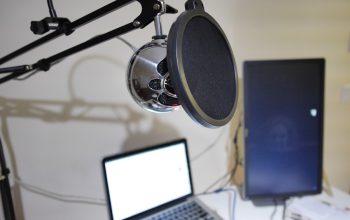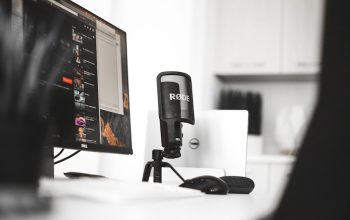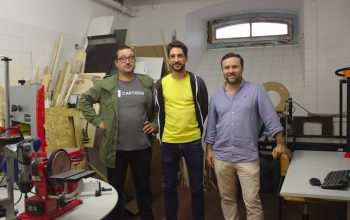In recent years, podcasts have emerged as a dynamic and engaging medium for language learning. With the proliferation of smartphones and the internet, accessing audio content has never been easier. This accessibility has transformed how learners approach language acquisition, allowing them to immerse themselves in the target language while on the go.
Unlike traditional classroom settings, podcasts offer a flexible and often informal way to engage with a new language, making them an appealing option for many learners. The auditory nature of podcasts caters to auditory learners and provides exposure to native speakers, diverse accents, and colloquial expressions that are often absent from textbooks. Podcasts can cover a wide range of topics, from culture and history to current events and personal stories, which can help learners connect with the language on a deeper level.
This connection is crucial for motivation and retention, as learners are more likely to engage with content that resonates with their interests. Furthermore, the episodic nature of podcasts allows for incremental learning, where listeners can build upon their knowledge over time. As learners tune in regularly, they not only improve their language skills but also develop a sense of community with other listeners who share similar goals.
Key Takeaways
- Podcasts are a valuable tool for language learning, offering authentic and engaging content in the target language.
- Using podcasts for language learning can improve listening skills, vocabulary, and cultural understanding.
- When choosing a podcast for language learning, consider the language level, topic, and format that best suits your learning style.
- Effective language learning through podcasts involves active listening, note-taking, and regular practice.
- Incorporating podcasts into your language learning routine can be done by setting specific listening goals and integrating them into daily activities.
The Benefits of Using Podcasts for Language Learning
One of the primary benefits of using podcasts for language learning is the exposure to authentic language use. Unlike scripted dialogues found in textbooks, podcasts feature real conversations that reflect how people actually communicate. This exposure helps learners understand nuances such as slang, idiomatic expressions, and cultural references that are essential for fluency.
For instance, a podcast discussing everyday life in a Spanish-speaking country may introduce listeners to local phrases and cultural context that would be difficult to grasp through traditional learning methods. Additionally, podcasts can be tailored to fit various proficiency levels, making them suitable for beginners as well as advanced learners. Many language-learning podcasts are designed specifically for different stages of language acquisition, offering structured lessons that gradually increase in complexity.
For example, a beginner might start with a podcast that focuses on basic vocabulary and simple sentence structures, while an advanced learner could engage with discussions on complex topics like politics or philosophy. This adaptability allows learners to progress at their own pace and revisit episodes as needed for reinforcement.
How to Choose the Right Podcast for Language Learning

Selecting the right podcast is crucial for maximizing the benefits of this learning tool. With countless options available, learners should consider their interests, proficiency level, and learning goals when making their choice. For instance, a learner interested in French cuisine might find a culinary podcast particularly engaging, while someone passionate about technology may prefer a podcast focused on tech innovations in the Francophone world.
By aligning podcast content with personal interests, learners are more likely to stay motivated and engaged. Proficiency level is another important factor in choosing a podcast. Beginners may benefit from podcasts that feature slow speech and clear pronunciation, while advanced learners might seek out content that challenges their comprehension skills.
It can also be helpful to look for podcasts that provide transcripts or supplementary materials, as these resources can enhance understanding and facilitate note-taking. Reviews and recommendations from other learners can also guide the selection process, helping individuals find high-quality content that suits their needs.
Strategies for Effective Language Learning through Podcasts
| Strategies | Benefits |
|---|---|
| Consistent Listening | Improves listening skills and comprehension |
| Active Note-taking | Enhances retention and understanding of content |
| Engaging with Content | Increases vocabulary and cultural understanding |
| Discussion and Reflection | Encourages critical thinking and language production |
To maximize the effectiveness of podcasts as a language learning tool, learners should adopt specific strategies that enhance comprehension and retention. One effective approach is active listening, which involves focusing intently on the audio content rather than passively absorbing information. This can be achieved by taking notes during episodes, jotting down new vocabulary or phrases, and summarizing key points afterward.
Engaging with the material in this way encourages deeper processing and reinforces learning. Another strategy is to incorporate repetition into the learning process. Listening to the same episode multiple times can help solidify understanding and improve pronunciation.
For instance, a learner might first listen to an episode without taking notes to grasp the overall message, then listen again while jotting down unfamiliar words or phrases. A third listen could involve repeating sentences aloud to practice pronunciation and intonation. This layered approach not only enhances comprehension but also builds confidence in speaking.
Incorporating Podcasts into Your Language Learning Routine
Integrating podcasts into a daily or weekly language learning routine can significantly enhance overall progress. Establishing a consistent schedule helps create a habit that reinforces language exposure over time. For example, learners might dedicate 20-30 minutes each day to listening to a podcast during their commute or while exercising.
This routine not only makes language learning more manageable but also ensures regular engagement with the target language.
For instance, alternating between storytelling podcasts, interviews, and educational content can provide varied linguistic exposure and keep the learning experience fresh and exciting.
Additionally, setting specific goals related to podcast listening—such as mastering a certain number of new vocabulary words each week—can help maintain motivation and track progress effectively.
Overcoming Challenges in Language Learning with Podcasts

While podcasts offer numerous advantages for language learners, they also present certain challenges that must be addressed for effective learning. One common issue is the difficulty some learners face in understanding native speakers due to speed or accent variations. To overcome this challenge, learners can start with slower-paced podcasts or those specifically designed for language learners before gradually transitioning to more advanced content.
Utilizing transcripts can also aid comprehension by allowing learners to follow along as they listen. Another challenge is maintaining focus during listening sessions, especially when distractions abound in everyday life. To combat this issue, learners can create a conducive listening environment by finding quiet spaces or using noise-canceling headphones.
Additionally, setting specific listening goals—such as understanding the main idea or identifying key vocabulary—can help maintain focus and make the experience more purposeful.
Resources and Tools for Enhancing Language Learning with Podcasts
Several resources and tools can enhance the language learning experience through podcasts. Many podcast platforms offer features such as playback speed adjustment, allowing listeners to slow down or speed up audio according to their comfort level.
Furthermore, various apps and websites provide supplementary materials related to popular language-learning podcasts. These resources may include vocabulary lists, comprehension questions, or discussion prompts that encourage deeper engagement with the content. Some platforms even offer interactive quizzes based on podcast episodes, allowing learners to test their understanding in an enjoyable way.
Success Stories: Real-life Examples of Language Learning through Podcasts
Numerous individuals have successfully utilized podcasts as a primary tool for language learning, showcasing the effectiveness of this medium. For instance, a learner named Sarah used Spanish-language podcasts to improve her conversational skills while living in an English-speaking country. By listening to episodes focused on everyday topics like shopping and dining out, she was able to pick up practical vocabulary and phrases that she later applied in real-life situations.
Another inspiring example is that of Mark, who learned Italian primarily through podcasts while working full-time. He dedicated his lunch breaks to listening to episodes tailored for beginners and gradually progressed to more advanced content over time. Mark’s commitment paid off when he traveled to Italy and confidently conversed with locals about various topics ranging from art to cuisine—skills he had honed through his podcast listening journey.
These success stories illustrate how podcasts can serve as powerful tools for language acquisition when approached with intention and dedication. By leveraging the unique advantages of this medium—such as authentic content, flexibility, and diverse topics—learners can achieve significant progress in their language learning endeavors.
If you are interested in learning more about how podcasts can benefit language learners, you may want to check out the article “Hello World” on the Education Podcast Network blog. This article discusses the various ways in which podcasts can enhance language learning and provide valuable resources for students looking to improve their language skills. To read more about this topic, you can visit the article here.
FAQs
What are podcasts?
Podcasts are digital audio or video files that are available for streaming or downloading online. They cover a wide range of topics and are often produced as a series of episodes.
How can podcasts benefit language learners?
Podcasts can benefit language learners in several ways. They provide exposure to authentic spoken language, help improve listening comprehension, expand vocabulary, and offer cultural insights.
What types of podcasts are beneficial for language learners?
Language learners can benefit from a variety of podcasts, including those specifically designed for language learning, as well as podcasts on topics of interest that are presented in the target language.
How can podcasts improve listening comprehension?
Podcasts can improve listening comprehension by exposing learners to natural speech patterns, different accents, and various speaking speeds. This helps learners become more accustomed to understanding real-life conversations.
What are some popular language learning podcasts?
Popular language learning podcasts include “Coffee Break Spanish,” “Duolingo Spanish Podcast,” “Learn French by Podcast,” “ChinesePod,” and “JapanesePod101.”
Are there podcasts available for different proficiency levels?
Yes, there are podcasts available for different proficiency levels, ranging from beginner to advanced. Some podcasts are specifically tailored to cater to the needs of learners at different stages of language acquisition.
Can podcasts help with vocabulary expansion?
Yes, podcasts can help with vocabulary expansion by introducing learners to new words and phrases in context. This can help learners understand how words are used in real-life situations.
How can learners use podcasts to practice speaking skills?
Learners can use podcasts to practice speaking skills by repeating phrases and sentences they hear, imitating the pronunciation of native speakers, and participating in language learning communities related to the podcast.



